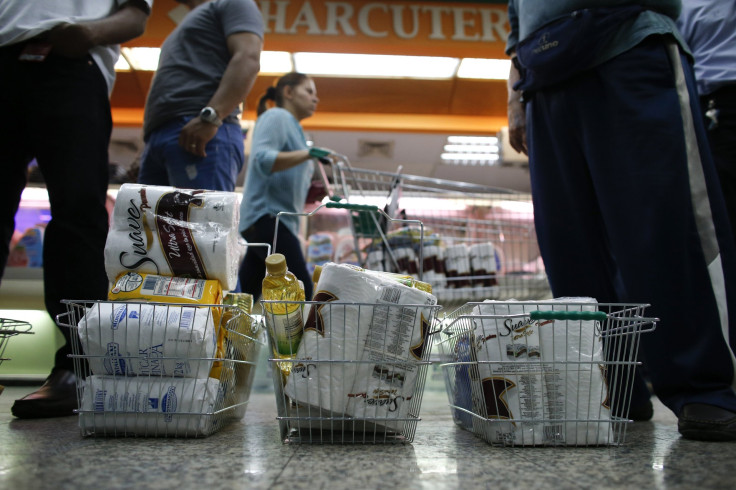Venezuelan President Maduro Nixes State’s Plan to Restrict Food Sales As Shortages Continue

Venezuela’s food shortage drama appears to have no end. President Nicolás Maduro has canceled an order by the governor of Zulia, Venezuela’s largest and most populous state in the west, to restrict the sale of 20 basic food products over the weekend.
Governor Francisco Arias Cárdenas, a Socialist ally of the president and former military officer, had decided to limit the sale of items such as cooking oil, flour, sugar, chicken and rice -- all of which are subject to price controls -- beginning as early as Monday, as a way of alleviating the overall shortage. It was also viewed as a way to stop people from purchasing large amounts of price-controlled goods in Venezuela and then selling them at a substantial profit in nearby Colombia (where such goods are more expensive). Cardenas denied the measure was tantamount to “food rationing” as some critics have charged. According to Peruvian newspaper El Comercio, another motive behind the restrictions was to prevent the smuggling of nonfood items to neighboring Colombia -- particularly of gas, which is highly subsidized in Venezuela.
Zulia government officials also said they would monitor sales in supermarkets and groceries through computer chips. “This idea is insane, whoever got it into their heads,” Maduro said in a televised speech on Saturday. "A chip? That is not the solution. I totally reject an initiative of that kind, whoever has put it into place.” Maduro also said that if people are buying more of certain items it is “because there have been spurts of panic” over the lack of such goods. “But this restriction plan in Zulia is not the solution, a chip here, a ticket there. ... The solution is to produce, produce, produce and a responsible consumer philosophy,” he added, as reported by Caracas newspaper El Universal.
Arias agreed to put the proposed restrictions on hold for the time being. Venezuela has been suffering from basic food and medicine shortages since the beginning of the year, while the annual inflation rate reached 35 percent in May, the highest such monthly rate in 17 years. According to Venezuela’s Central Bank, the scarcity index in the country is more than 20 percent, meaning that out of 100 goods, 21 are currently unavailable. ABC News reports that economists blamed the financial woes on a shortage of foreign currency due to decreasing oil exports and major government spending on political campaigns and social programs related to the late President Hugo Chávez’s reelection bid last year.
Follow me on Twitter: @PReyMallen
© Copyright IBTimes 2024. All rights reserved.





















